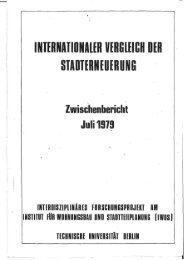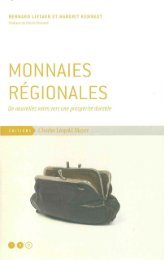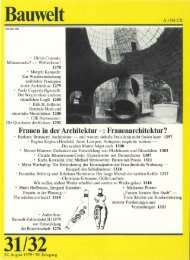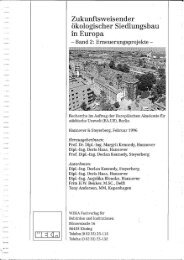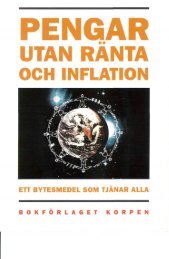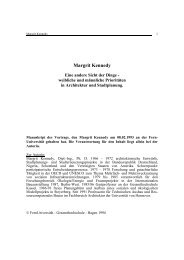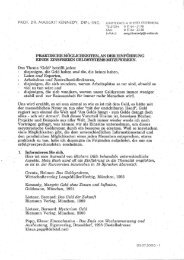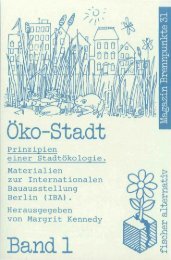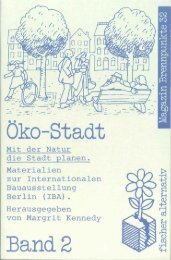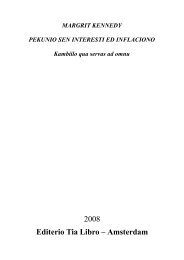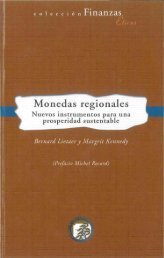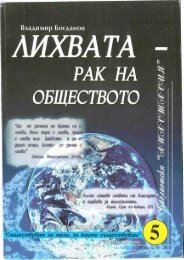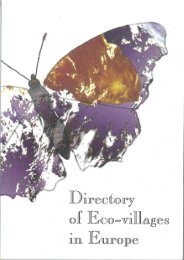BUILDING FOR SCHOOL AND COMMUNITY - Kennedy Bibliothek
BUILDING FOR SCHOOL AND COMMUNITY - Kennedy Bibliothek
BUILDING FOR SCHOOL AND COMMUNITY - Kennedy Bibliothek
You also want an ePaper? Increase the reach of your titles
YUMPU automatically turns print PDFs into web optimized ePapers that Google loves.
as the mainsprings of science. Instead the world is studied exclusively<br />
at second or third hand, through the literature, sciences, art and music<br />
of others. In the few instances in which the resources of the city are<br />
used directly they tend to be places like museums or art galleries, themselves<br />
institutions, places to which fragments of the real world have been<br />
transported, labelled and put up for exhibition after being removed from<br />
the actual and living contexts which gave birth to them.(1) Only in very<br />
rare cases do the resources of the city turn out to be workshops where<br />
students can participate and make things, or artists' studios where students<br />
are encouraged to paint or sculpt.<br />
14. Of course many teachers will say that students at secondary or high<br />
school levels "are not to be trusted" in environments of this kind, because<br />
they might do something irresponsible or "silly". And they are probably<br />
right, because the students they are referring to are near the apex of the<br />
educational pyramid and have already had some years of training in the<br />
mistrust of their own personal sensitivity and self-expression, and of the<br />
self-expression of their friends, families and peer groups around them.<br />
As a result of years of institutionalized training, in which patterns of<br />
conduct and processes of thought have been imposed, the student has lost<br />
his sense of direct personal responsibility. "Being a citizen" is today<br />
a result of training and conformity, rather than the assumption of broader<br />
and broader responsibilities based on direct interpersonal relationships<br />
and feelings.<br />
15. It is ironical that this phase of education takes place during what<br />
we call "the formative years". In other words, the years in which our<br />
attitudes and drives are developing most rapidly is when the pyramid narrows,<br />
and when education is at its most institutionalized, controlled and<br />
simulative.<br />
Education and Middle Class Sameness<br />
16. As we have said, the goal of education in most countries is to enter<br />
its human products into the middle class mainstream. The successful<br />
1) Simon Nicholson, Director of the Oxford Research Unit in Great Britain's<br />
Open University, has drawn the distinction between inert and inventive.<br />
"The inert person reads other people's books, becomes able, within<br />
limits, to criticize and understand the work of others, and watches performances<br />
by others, such as, for example, watching one-way TV. Contrasting<br />
with this, the inventive person writes books, generates ideas,<br />
cooks meals, has theories, makes art, and shapes and builds the environment<br />
that is his or her own. In theory we all have the chance to be<br />
either inert or inventive, but in practice our physical, social and<br />
political environment conditions most of us to be inert." Children as<br />
Planners, The Open University, Milton Keynes, England, April 1974.<br />
148



